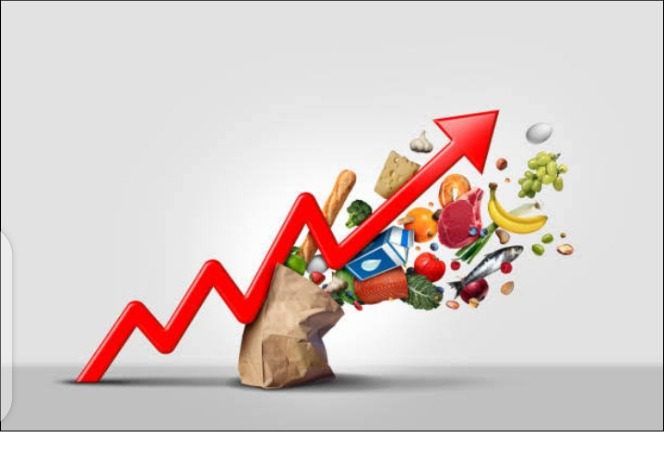Economic Issues
The High Price Of Goods In Nigeria -By Rashida Abdulazeez
The impact of high prices in Nigeria is complex and far-reaching. It affects every aspect of people’s lives, from their health and well-being to their economic opportunities and quality of life. While there are some positive aspects, such as increased access to goods and services, the overall impact is negative.

The high price of goods in Nigeria is a significant issue that affects millions of people across the country. The cost of essential items such as food, housing, and transportation has been rising rapidly, while wages have remained stagnant. This has created a significant economic burden for many families, who are struggling to make ends meet. In some cases, people have had to resort to taking on debt or selling off their assets to cover basic expenses. The high cost of living has also contributed to increased crime rates and social unrest, as people become more desperate and angry about their situation.
The government has been criticized for failing to address the issue, and there is growing pressure for action. Some potential solutions include increasing wages, improving access to affordable credit, and reducing tariffs and other trade barriers. However, it is clear that the problem is complex and requires a multi-faceted approach to resolve. In the meantime, many people in Nigeria are facing a daily struggle just to put food on the table and keep a roof over their heads. The high price of goods is having a major impact on their lives and their future prospects.
One specific example of the impact of high prices is the increasing cost of healthcare. In Nigeria, healthcare costs have been rising rapidly, while the quality of care has remained poor. This has led to many people avoiding seeking medical care, even when they are ill or injured. This has had a significant impact on public health, as preventable diseases and injuries have become more common. The rising cost of healthcare has also placed a significant financial burden on families, who may have to sell off their assets or go into debt to pay for treatment. This has led to a cycle of poverty and ill health that is difficult to escape.
Another specific example of the impact of high prices is the increasing cost of food. Food prices have been rising rapidly in recent years, due to a number of factors, including drought, conflict, and inflation. This has led to a significant increase in hunger and malnutrition, particularly among children. In some cases, families have been forced to choose between paying for food and paying for other basic necessities, such as housing and education. This has created a cycle of poverty and hunger that is difficult to escape. In addition, the high cost of food has also led to social unrest, as people protest against the rising prices.
A third specific example of the impact of high prices is the increasing cost of fuel. Fuel prices have been rising rapidly in recent years, due to a variety of factors, including global demand, political instability, and taxes. This has led to a significant increase in the cost of transportation, as well as an increase in the cost of electricity, which is generated by burning fuel. This has had a major impact on people’s daily lives, as they have had to pay more for basic necessities such as food and transportation. It has also had an impact on the economy, as businesses have had to pay more for fuel and electricity, leading to higher prices for goods and services. The rising cost of fuel has also had an environmental impact, as it has led to an increase in the use of coal and other fossil fuels. This has contributed to climate change and environmental degradation. It has also caused a strain on the country’s infrastructure, as the increased use of fuel has led to a need for more roads and power lines. Overall, the high cost of fuel has had a major impact on the lives of people in Nigeria.
Finally, a fourth specific example of the impact of high prices is the increasing cost of housing. Housing prices have been rising rapidly in recent years, due to a number of factors, including population growth, urbanization, and a lack of affordable housing. This has led to a significant increase in homelessness, as people are unable to afford to rent or buy a home. It has also led to increased levels of poverty, as families spend a larger proportion of their income on housing. The high cost of housing has also had a negative impact on the economy, as it has made it more difficult for people to save money and invest in the future.
The impact of high prices in Nigeria is complex and far-reaching. It affects every aspect of people’s lives, from their health and well-being to their economic opportunities and quality of life. While there are some positive aspects, such as increased access to goods and services, the overall impact is negative. The government needs to take a more proactive approach to address the root causes of high prices, in order to improve the lives of all people in Nigeria.
Rashida Abdulazeez writes from Mass communication department Abubakar Tatari Ali Polytechnic Bauchi and can be reached via email:
rashidaabdulaziz0@gmail.com



















